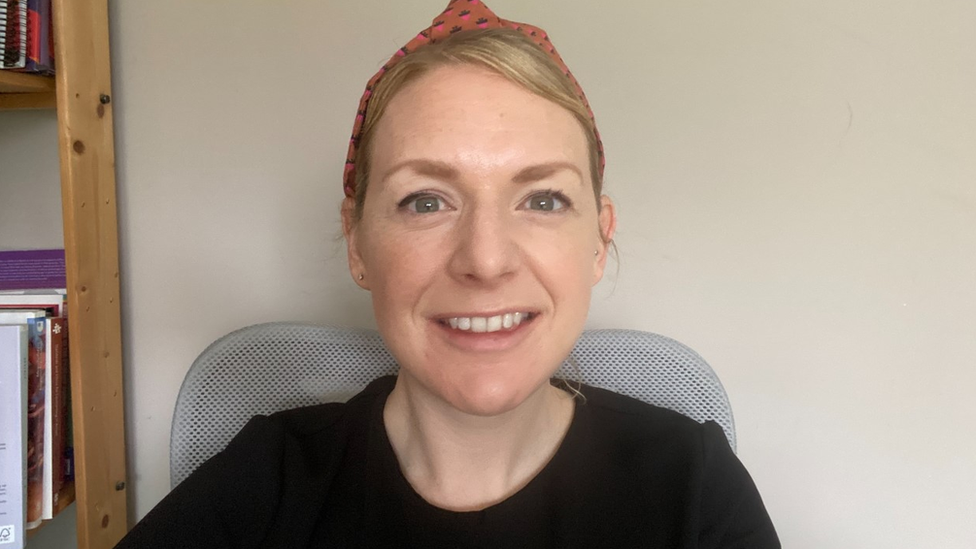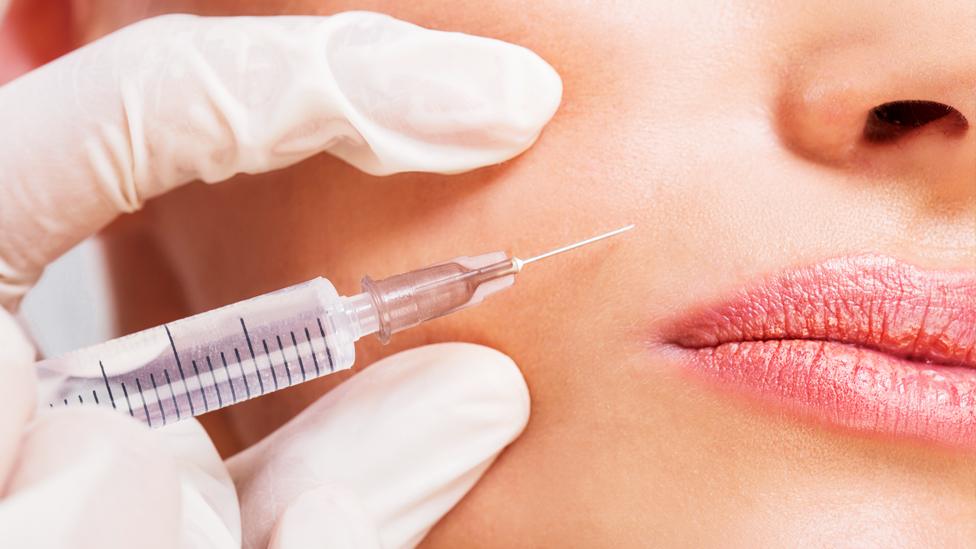Charlie King: TOWIE star describes body dysmorphia 'turmoil'
- Published

Charlie King appeared on The Only Way is Essex
Reality star Charlie King says having body dysmorphia has taken him "to the depths of despair".
The 36-year-old, who appeared on The Only Way is Essex, says he struggled with his body image before going on TV.
He appeared before the Health and Social Care Committee on Tuesday as part of its inquiry into the impact of body image on mental and physical health.
Charlie spoke about how his mental health condition has affected his life.
He has been diagnosed with body dysmorphic disorder (BDD), external, which is a mental health condition where a person spends a lot of time worrying about flaws in their appearance which might be unnoticeable to others.
"During lockdown I became obsessed with my nose," he told MPs on the committee.
"I saw a plastic surgeon who agreed 'we could fix that' and he gave me validation."
He says there was no assessment by the surgeon on his mental health, or a need for him to disclose that he suffered from BDD.
He told the committee that he believed surgeons should check with potential patients to see what their mental state is when they pursue cosmetic procedures.
Plastic surgeon Nigel Mercer is a former president of the British Association of Plastic Reconstructive and Aesthetic Surgeons, and says that all surgeons who are part of his organisation and of the British Association of Aesthetic Plastic Surgeons, are expected to have an advanced understanding of how to identify psychological factors in patient consultations.
Many within the organisation have taken an advanced cosmetic surgery course which covers mental health, and he says the majority of surgeons offer counselling to patients, but take-up is low.
Charlie said when the nose job went wrong, he "went to the depths of despair".
"I had to go and live with my mum because I couldn't earn money and I was depressed. There were no resources [from the plastic surgeon to help] and that year was so challenging."
His testimony comes as 80% of people said their body image had a negative impact on their mental health, in a survey conducted by the Health and Social Care Committee.
More than 1,500 people took part in the survey, which also asked about the accessibility of NHS mental health services, and whether the government was taking the effects of negative body image seriously.
'I felt so embarrassed'
Charlie says he wants more awareness around BDD so that people can get the right help.
"I felt so embarrassed as a man, It feels vacuous but people [with BDD] need to know that what they feel is valid and that it's treatable," he says.
"We need to give people access to what they need, instead of them thinking they need to change themselves.
He says his anxiety and depression stemmed from body dysmorphia and "if I'd have understood that more I might not have been in this position".

Symptoms of body dysmorphic disorder
Worrying a lot about a specific area of your body (often your face)
Spending time comparing your looks with other people's
Looking at yourself in mirrors a lot or avoiding them
Putting a lot of effort into concealing flaws
Picking at your skin

The Health and Social Care Committee has held a number of hearings as part of its inquiry into body image, with three oral evidence sessions happening alongside its public survey.
The survey also found:
64% who had accessed NHS mental health services as a result of negative body image had a negative experience
72% said the government was not paying enough attention to the impact that negative body image can have on health
Other contributors to the committee have included aesthetics awareness charity Save Face, the Mental Health Foundation and the Joint Council for Cosmetic Practitioners.
- Published3 March 2022

- Published8 March 2022

- Published1 March 2022
